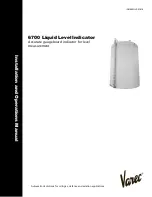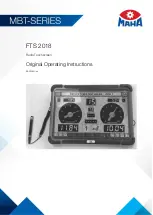
1
Introduction
Scan Modes
6
TSQ Quantum XLS and TSQ Quantum GC User Guide
Thermo Scientific
The mass analyzer or the mass spectrometer has three rod assemblies.
2
The first and third rod
assemblies, Q1 and Q3, are quadrupoles, and the second rod assembly, Q2, is a square-profile
quadrupole.
Rod assemblies can operate in either of two capacities:
• As ion transmission devices
• As mass analyzers
If only RF voltage is applied, a rod assembly serves as an ion transmission device that passes
all ions within a large range of mass-to-charge ratios (that is, virtually all ions present).
When you apply both RF and dc voltages to a rod assembly, the separation of ions of different
mass-to-charge ratios occurs. This separation allows the rod assembly to serve as a mass
analyzer.
On the TSQ Quantum XLS and TSQ Quantum GC mass spectrometers, the quadrupole rod
assemblies can operate with rf and dc voltages or with only rf voltage. That is, Q1 and Q3 can
act either as mass analyzers or ion transmission devices. The Q2 rod assembly operates
exclusively with rf voltage. Thus, Q2 is always an ion transmission device. Surrounding Q2 is
a collision cell where fragmentation can take place if the argon collision gas is present in the
cell. For a summary of how the rod assemblies function in several of the major scan modes, see
.
a
Scan = full scan or transmission of selected ions
b
Pass all ions or fragments = pass ions or fragments within a wide range of mass-to-charge ratios
c
Fragment ions = collisions with argon gas cause ions to fragment
d
Set = set to pass ions of a single mass-to-charge ratio or a set of mass-to-charge ratios
2
A rod assembly is a regular array of metal rods. Refer to
for a discussion of the rod
assemblies used on the TSQ Quantum XLS instrument.
Table 1.
Summary of scan modes
Scan mode
Q1 quadrupole
Q2 collision cell
Q3 quadrupole
Q1MS
Scan
a
Pass all ions
b
Pass all ions
Q3MS
Pass all ions
Pass all ions
Scan
Product
Set
d
Fragment ions
c
, then pass
all fragments
Scan
Parent
Scan
Fragment ions, then pass all
fragments
Set
Neutral Loss
Scan
Fragment ions, then pass all
fragments
Scan
















































